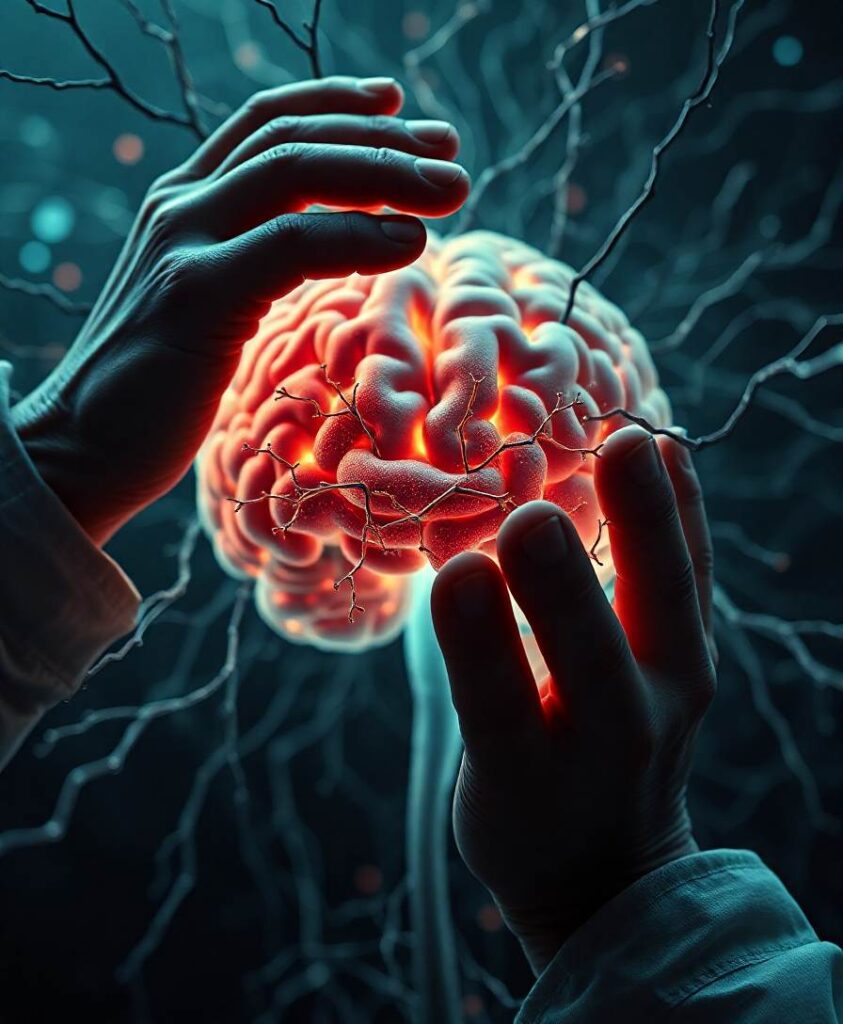When you sit down for a meal and feel that familiar tug—an instinctual craving or a dull hunger—you’re feeling more than just a simple signal; it’s a complex dialogue happening deep within your brain. Imagine the nerve cells in the brain stem as tiny gatekeepers, quietly orchestrating your appetite and how much you eat. These microscopic messengers are now revealing secrets that could make a meaningful difference in how we approach weight loss.
Recent research points to a specific group of nerve cells in the brainstem that play a pivotal role in how certain medications, like semaglutide, influence appetite and weight management. What’s striking is that these nerve cells seem to control the appetite-suppressing effects of the drug without triggering the uncomfortable side effect of nausea that often comes with weight loss treatments.
This discovery is like uncovering a hidden switch within the brain that could help us regulate hunger more precisely. For many people, the challenge of losing weight isn’t just about willpower—it’s about understanding and interacting with these internal signals that influence how much we want to eat. When this neural pathway is better understood, it opens the door to developing treatments that target these nerve cells directly, providing relief for those who struggle with traditional weight loss methods.
If you’ve ever felt frustrated by medications that cause nausea or discomfort, this research offers hope. It suggests that future therapies could be designed to activate the brain’s appetite control centers more selectively—kind of like tuning a radio to just the right station, without the static or unwanted noise. This refined approach might make weight management feel less like a battle and more like a natural balance—an internal harmony that supports healthier choices without discomfort.

For individuals exploring options to support their weight loss efforts—whether through medication, lifestyle changes, or a combination—the emerging understanding of brain nerve cells offers a more nuanced perspective. It encourages us to see weight management not solely as a matter of calorie counting or discipline but as a dance with our own biology. Recognizing the pivotal role of these brainstem neurons can help us appreciate the complexity of appetite regulation and inspire personalized strategies that honor our unique neural wiring.
In this ongoing quest to unlock the secrets of appetite and weight control, the focus on specific nerve cells in the brain stem reminds us that our bodies are intricate systems—each part playing its role in the symphony of health. As science continues to map this neural landscape, hope shines brighter for more effective, targeted, and compassionate approaches to achieving and maintaining a healthy weight.
How brain nerve cells influence appetite and weight loss treatments
Learn More: Weight loss linked to nerve cells in the brain stem
Abstract: A specific group of nerve cells in the brain stem appears to control how semaglutide affects appetite and weight — without causing nausea.
Link: Read Full Article (External Site)

